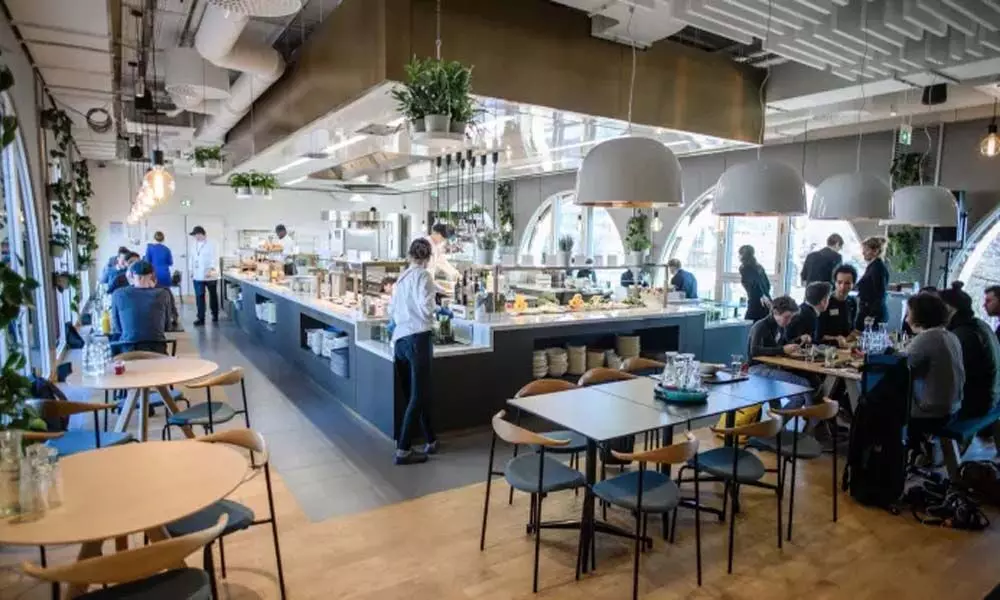Restaurants Boost Menu Prices as London Returns to 'Normal'

London' Restaurants increase menu prices
Fifty pence on a bowl of Singapore noodles.
Fifty pence on a bowl of Singapore noodles. An extra pound on a plate of steaming soft-shell crab.
Thomas Tjong has been gradually raising prices at some of the London locations of his pan-Asian restaurant chain Ekachai, faced with costs that have surged as much as fivefold for delivery of ingredients from Thailand, Hong Kong and Malaysia. At the same time, staff shortages have him mulling a signing bonus to entice workers.
"As the restaurateur, we just have to pass it on in the end," Tjong said in a phone interview. Prices of his dishes have already climbed about 8% in busier suburban locations, and he's considering further increases with the approaching end of the U.K. government's pandemic tax cuts. "We have to get our margin back."
Higher prices at Ekachai and other venues across the capital suggest that consumers eager to return to London's restaurants as the economy reopens may find their wallets lighter as a result. Rising wages and prices in the hospitality industry and elsewhere are fanning concerns at the Bank of England about when to pare back stimulus put in place when the virus hit the U.K. in early 2020.
Inflation accelerated unexpectedly in each of the past two months, surpassing the central bank's 2% target for the first time in almost two years. BOE Governor Andrew Bailey has said many of the price increases are likely to be temporary, but at least two of his colleagues expect inflation to reach 4% without action from the bank.
Drinkers may not find much solace on the pub menu either. The price of a round of beverages ranging from a gin & tonic to a pint of lager has increased 5.7% in July relative to the same month in 2019, according to the CGA'S drinks price monitor.
The hospitality industry has been among the hardest-hit by the effects of lockdowns, forced to close for most of the past 16 months. Since restrictions started easing, these businesses have also had some of the most difficulty in finding qualified staff and coping with safety regulations.
They see little relief coming after July 19, when they will be able to open to full capacity, with no social distancing requirements.
"There are definitely cost pressures coming all over the place," said Pano Christou, chief executive officer of sandwich chain Pret A Manger Ltd., which has increased the price of its filter coffee to 1.25 pounds from 99 pence. A shortage of heavy-vehicle drivers is hiking the cost of logistics, he said.
Seated dining in London is at 69% of pre-pandemic levels, according to OpenTable data collated by the Office for National Statistics. Some restaurants may not see much increase in traffic after July 19, especially those that depend on office workers in the city center.
A shortage of truck drivers has meant the price of meat has soared, said Felice Pollano, who runs the Italian restaurant Ciao Bella in London's Bloomsbury. That's forced him to raise his own prices "a little bit." Loyal regulars will also find there are fewer tables than normal, not due to social distancing rules, but because of a lack of staff.
"I've been here 52 years, and we've never had this kind of problem before," Pollano said.
The accommodation and food services sector saw the biggest jump in job openings from April to June, the Office for National Statistics reported on Thursday. Many workers in these industries may have pivoted to other roles when hospitality venues were forced to close, it said.
Fear of contracting Covid-19 or being forced to self-isolate could also be lessening the appeal of consumer-facing roles, Bank of England policy maker Michael Saunders said in a speech on Thursday.
Bin Li, owner of independent Chinese restaurant chain Murger Han, says a big problem for him is Brexit, which has led to soaring prices of imports from the continent.
"Vegetable prices have sometimes doubled since Christmas," he said in a phone interview.
For now, Li has been absorbing the added costs to avoid deterring customers. Tjong has also kept prices lower at his restaurants in London's financial quarter, where transactions are at about 40% of pre-pandemic levels.
Even raising prices may not help restaurants recover lost revenue. At Ciao Bella, Pollano said he doubts business will ever return to normal as more commuters keep working at home at least a few days a week.
"We've always been busy. Before we used to send 100 people away," he said. "Now we don't send anyone away."

















